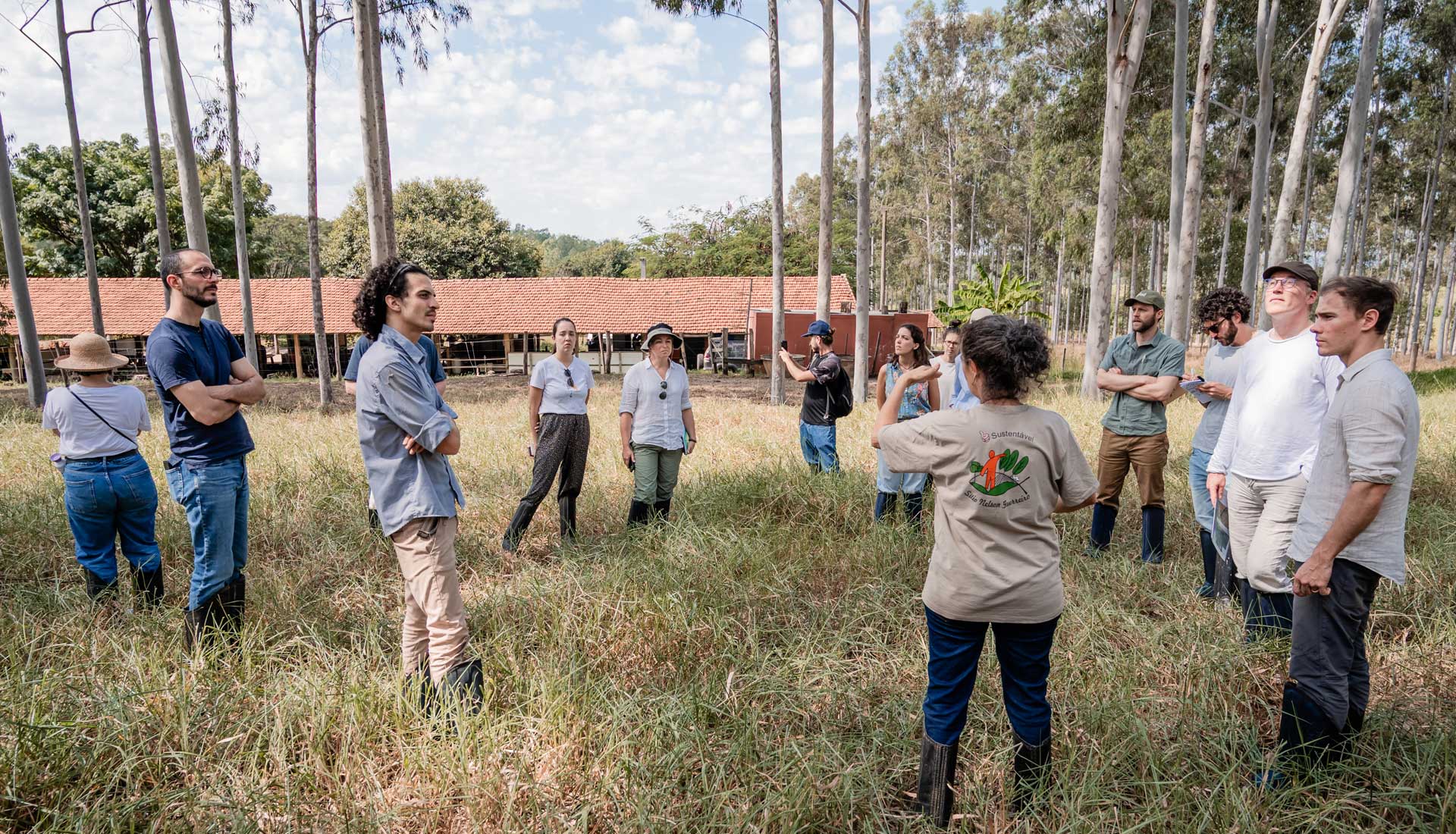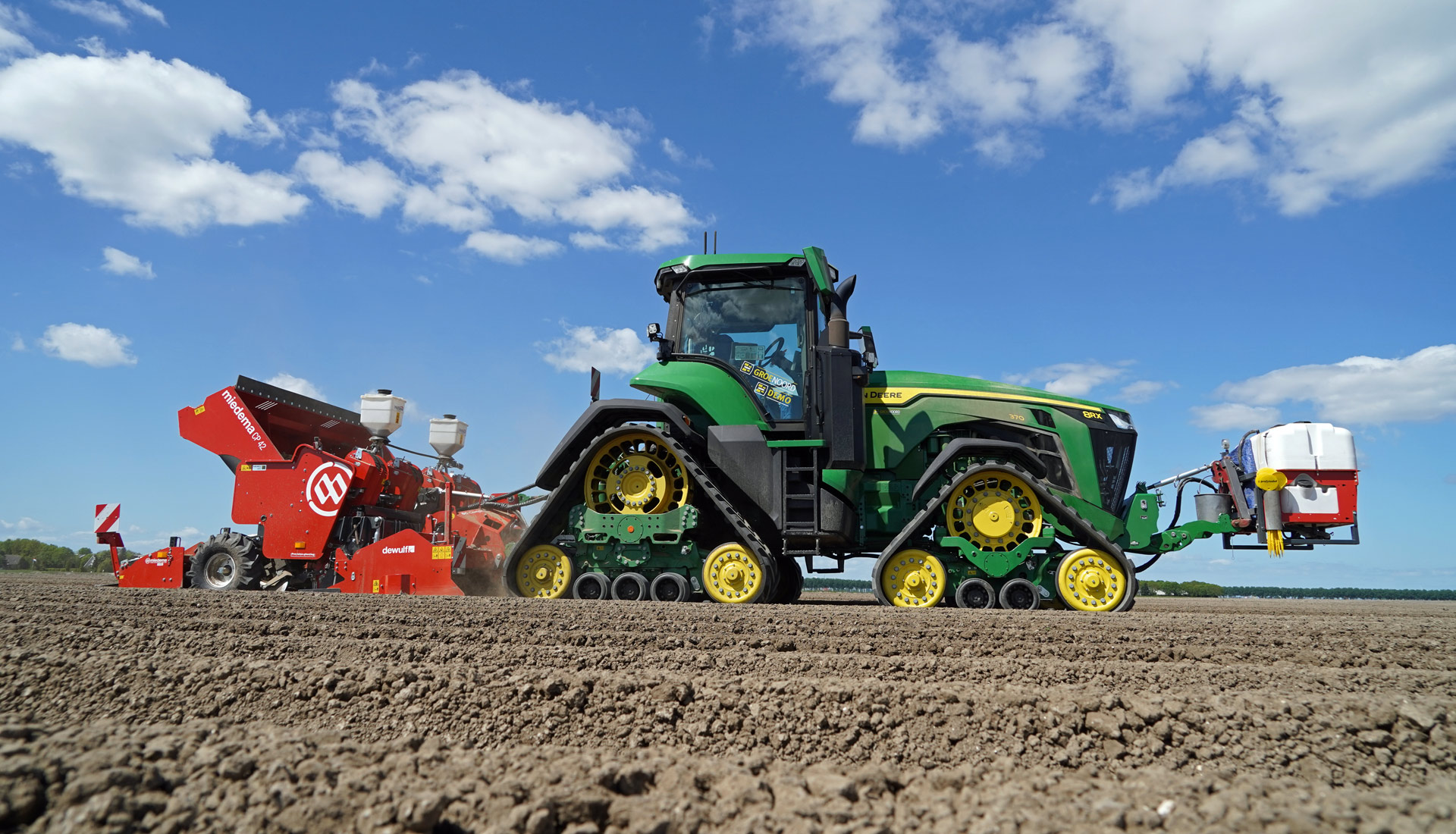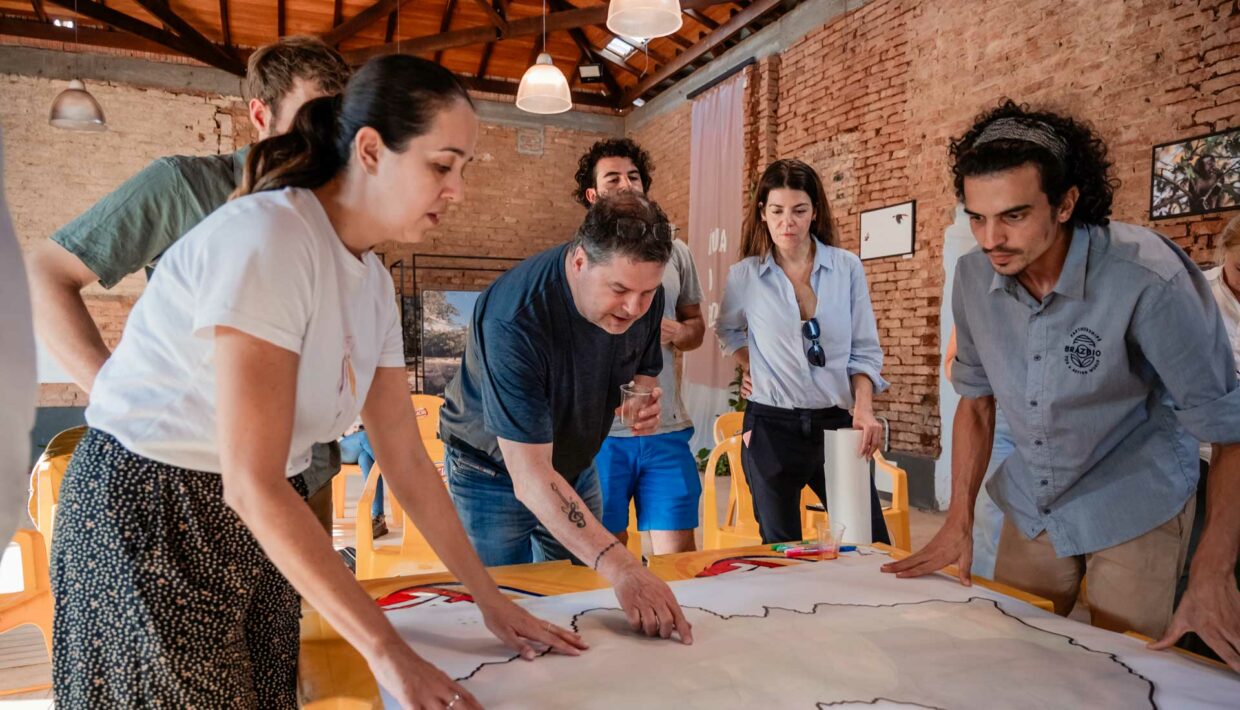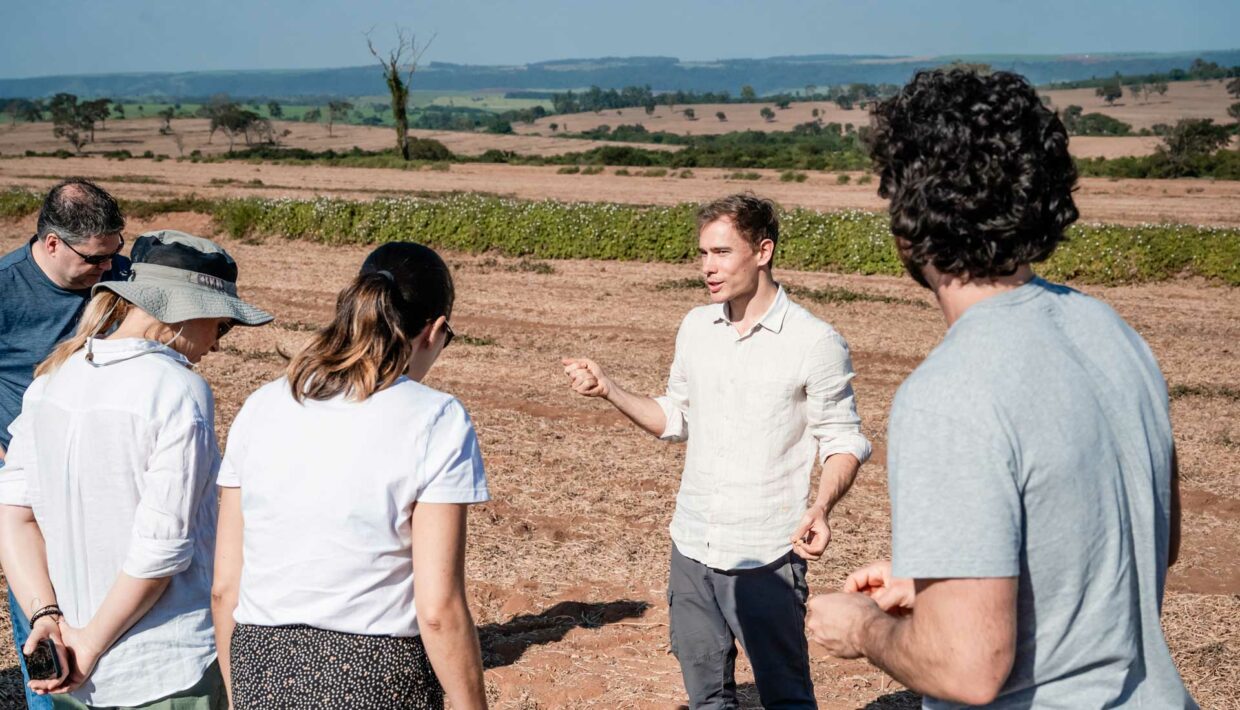A Monday morning on the largest organic arable farm in the Netherlands. The participants of the Academy have arrived at the BV Erf for their one-week intensive course. The arable farm is one of thirteen “lighthouse farms” that make up the Global Network of Lighthouse Farms. These 13 farms, spread across the globe, are faced with a wide range of agricultural challenges. In order to continue to operate sustainably, they are developing new, radical approaches. These groundbreaking ideas are shared with stakeholders from a range of industries via the Global Network and the associated Lighthouse Farm Academy and are intended to serve as an inspiration and show how agriculture can respond to global upheavals. And can continue to exist in the future.
Organic on a large scale: BV Erf
The head of the Global Network of Lighthouse Farms, Prof. Rogier Schulte, explains: “The Academy is there to bring together participants from different areas along the value chain at one table, or in this case, on one farm. Here they can see the real situation, the farmers’ daily work and what challenges they face. We want to equip stakeholders with the knowledge they need to make informed decisions that are helpful to farmers.” In order to create more sustainable agricultural systems, the Academy does not even address farmers themselves: “They know what they are doing. What is much more important is that decision-makers – for example those who work for banks, consulting agencies or machine manufacturers – exchange ideas.” This is exactly what Marc Gijsbers intends to do. He first completed online courses, now the second and practical part of the Academy, the Lighthouse Farm Lab, takes place on Monday morning.

We want to equip stakeholders with the knowledge they need to make informed decisions that are helpful to farmers.
Prof. Rogier Schulte, Head of the Global Network of Lighthouse Farms
Theory and practice for stakeholders
Marc Gijsbers works as Senior Associate at the NGO World Business Council for Sustainable Development (WBCSD) in Geneva. “The vision of our organization is that more than 9 billion should be able to live well, within planetary boundaries, midcenturary. Despite and precisely because of the climate emergency, the growing loss of nature and the many inequalities.” He focuses on the large area of agriculture and food. The NGO’s members include companies from the entire value chain, such as Unilever, Cargill and Bunge, food manufacturers, feed traders or suppliers to the food industry. The NGO also works actively with other NGOs, academics and initiatives to ensure companies can transform to contribute to achieving the vision.

“On a daily basis, I work with the members to make progress towards regenerative and fair food and agricultural systems that provide nutritious, healthy, and safe food for all.” One question he explores through accessing the latest science via the academy includes: How could future-proof systems look like at different locations that fit the NGOs vision, and how will the NGO practically accelerate action towards such systems? He is particularly interested in how farmer-centric approaches can be implemented and how businesses can effectively mitigate the risks associated with the transition for various types of farmers. To Marc and fellow participants, the week at ERF is exactly the right place to discuss such challenges and how to deal with them.

The insights of the experts are very exciting and helpful because they contain both theoretical topics from research and practical insights into their work.
Marc Gijsbers, Senior Associate at WBCSD
The lab lasts five days, from Monday morning to Friday afternoon. The mornings are dedicated to theory, with guest lecturers reporting on their research. “There was an expert in biological seed breeding and refinement and the sustainability director of a large brewery. Their insights are very exciting and helpful because they contain both theoretical topics from research and practical insights into their work,” says Gijsbers. Another day is devoted to robotics and the future of artificial intelligence. During the afternoons particpants gain practical insights directly on the BV Erf fields.
More knowledge for more sustainability
Marc Gijsbers is impressed by the concept of the Academy. After all, achieving the transition to a more sustainable agriculture requires more knowledge on the part of the participants. “The way we learn – based on the latest scientific findings, but also in practice – is an important factor in our further development. We all benefit from the close cooperation and the exchange of ideas during this intensive week. You can discuss so many ideas with people operating in academia and practice. This would be almost impossible during day to day work.”
After five packed days, the participants take the knowledge they have gained back to their daily work. “I continue to benefit from the insights I have gained from the farm. I use the frameworks and insights I have learnt on a daily basis in my work,” explains Gijsbers. “For me, reintroducing complexity in agricultural systems in a managed way is one of the critical challenges of our time. The demands on agriculture are very high and will continue to increase. Producing high-quality products, generating high yields and protecting nature at the same time – that’s a very complex task.”
4 questions that the participants of the Academy work on
- What does the future of agriculture and food supply look like from the perspective of various participants?
- Which key figures capture aspects of sustainability in their area in a transparent and generally valid way? Which indicators are relevant to their goals?
- Which approaches to sustainable agriculture play a role here (such as circular economy or regenerative agriculture)?
- How can these changes be implemented in daily work?
“Yet, we need to see nature and agriculture not as separate, but as one. Through reintroducing manageable complexity in our fields through leveraging state-of-the art knowledge, machinery, and other technologies, I am sure we can create positive holistic social, environmental, and economic outcomes. And luckily many companies and partners I work with on a daily basis at WBCSD agree so as well. The academy gave me useful theoretical and practical insights to do so.” The organisers of the Academy, the Lighthouse farms and the participants all agree: Ultimately, the most important goal for stakeholders and farmers is to find a common language between business, practice, and the demands of climate, nature and fairness.




